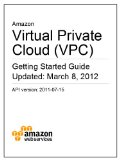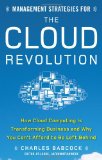Cloud computing is the new paradigm for how companies use and manage IT. Chances are you are already using a Cloud solution at a personal level. If you use Google’s Gmail or Hotmail, those are Cloud Solutions.
In particular, Software as a Service is a category of Cloud Computing defined as is a software delivery model in which software and its associated data are hosted centrally in the provider’s infrastructure and are typically accessed by users using a thin client, normally using a web browser over the Internet.
The advantages of Software as a Service are relevant for most business:
The pay-as-you-go model, which allows businesses to pay for what they consume, instead of having to invest up-front in IT resources dimensioned for the worst case scenario.
Stay current: with cloud computing, somebody else manages the infrastructure and ensures that you are kept in the latest available version, avoiding costly (and sometimes traumatic) upgrades.
Do not invest in hardware: by having somebody else managing the infrastructure, you don’t have to purchase and maintain expensive hardware like servers, network storage and similar.
The success of the Software as a Service Cloud computing model is bringing in the big players of the industry. In particular, the arena of Collaboration and Productivity, Google is making a big effort to compete with Google Apps, an affordable solution for collaboration needs of any size business, and Microsoft is upping his offering with Microsoft Office 365, the Cloud Solution that includes applications that before could be afforded by mid-size companies with an IT budget.
As an example, this is a list of benefits of Microsoft Office 365 for small and mid-sized business:
Manage your email in the cloud without having to be concern about backing it up of space limitations (it includes 25GB in most of its available plans).
Manage documents and collaborate with colleagues using SharePoint.
Communicate and save on telephone by using Voice over IP (VoIP) with Lync Online.
As a bonus, if your company is periodically having to buy Microsoft Office licenses, you also get the benefit of being able to rent Office instead of having to make the whole up-front payment.
Cloud computing is here to stay. Every business should evaluate cloud alternatives before their next IT investment.
Having access to Cloud Solutions is allowing ANY kind of business to compete with similar tools than the ones used by the big companies, and using them as an entrepreneur is becoming almost a MUST.



















Stay in touch!